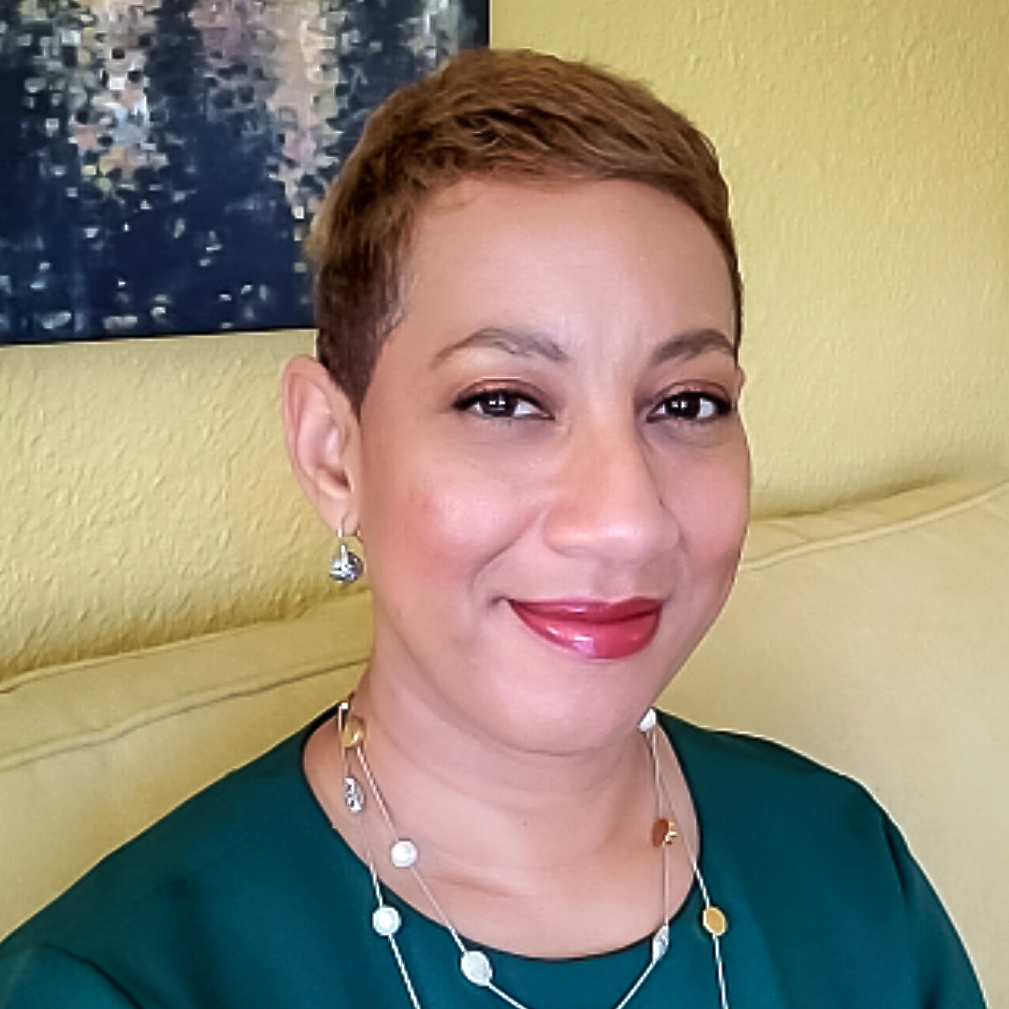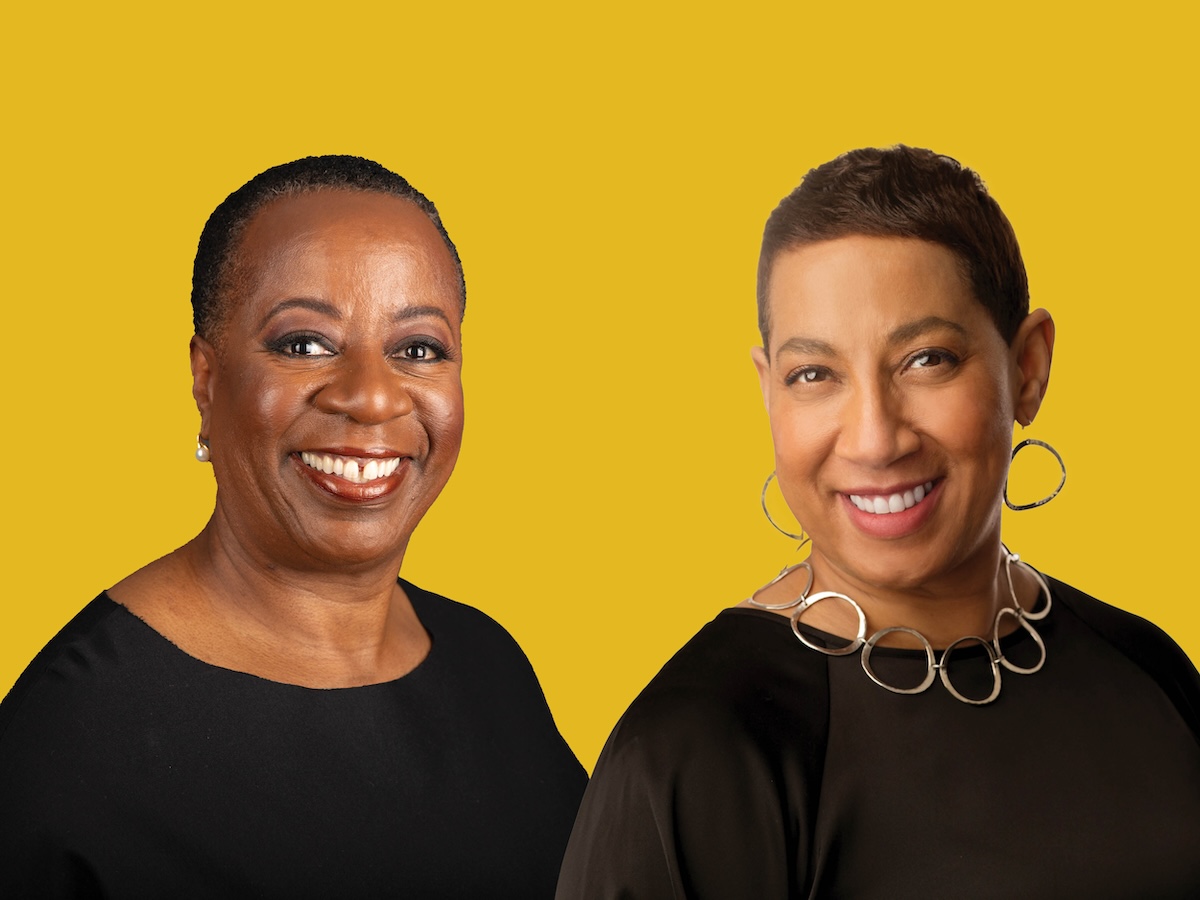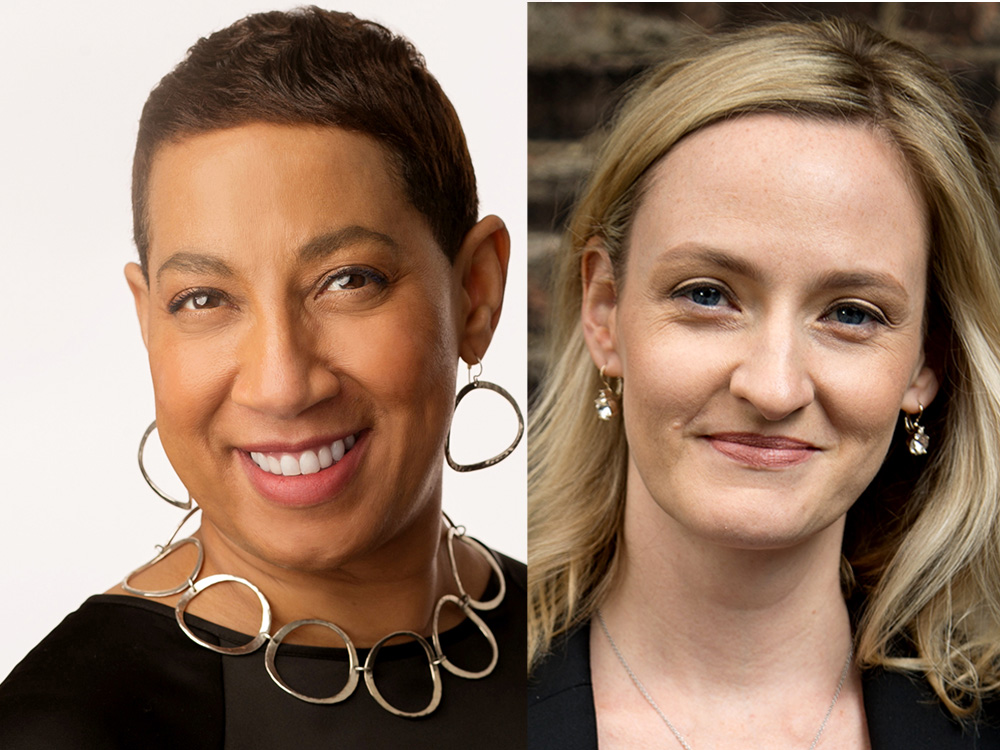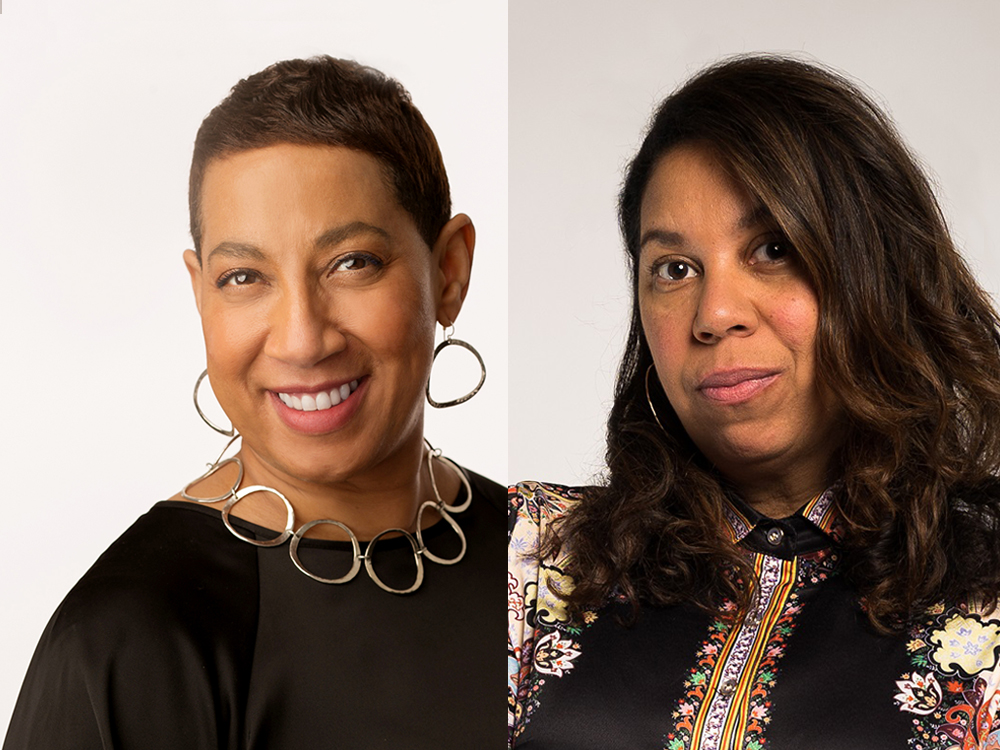How People-First Leadership is Driving Philanthropy New York’s Equity Journey
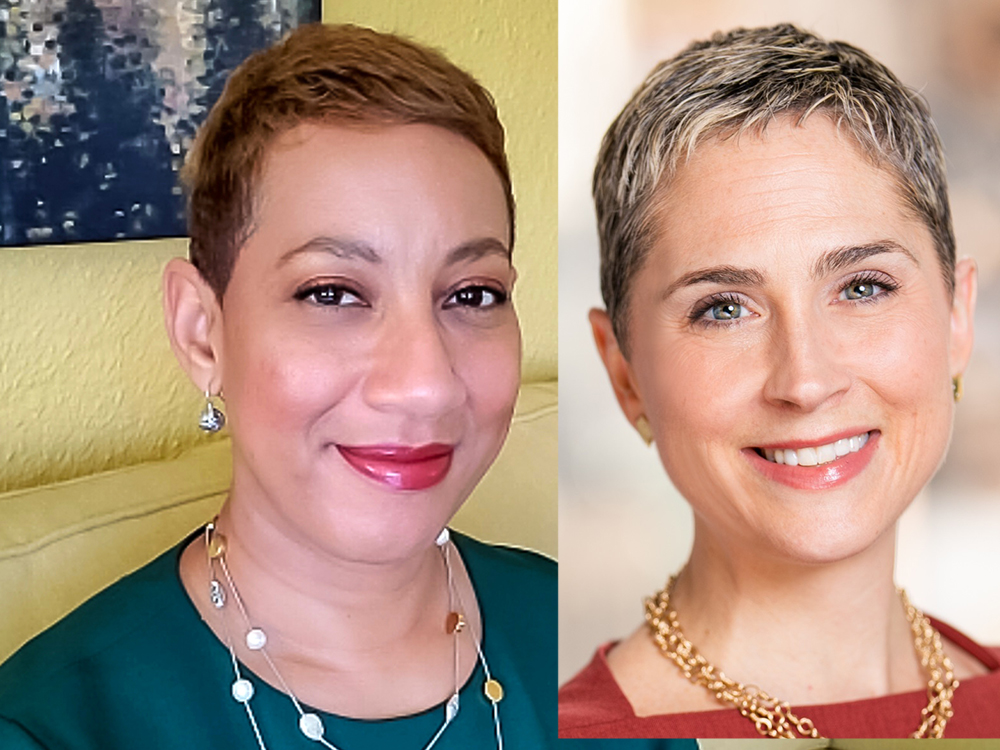
Philanthropy New York CEO Kathryn O’Neal-Dunham takes a holistic approach to her work and is well-attuned to how relationship dynamics within and between organizations impact outcomes. During her tenure, she has worked to help the organization rethink its processes and values so that they better center people—and, more specifically, racial equity—in all facets of work and to promote sector-wide paradigm shifts to narrow power gaps between funders and grantees.
As part of our ongoing CEO:CEO interview series, PEAK Grantmaking President and CEO Satonya Fair sat down with O’Neal-Dunham to discuss how her career journey shaped her people-first approach to leadership and the growing capacity for operations-level professionals to champion change. Here are some highlights from their conversation.
Fair: You’ve done just about everything in this space. What particular skill set prepared you for leadership, not just in this role, but in general?
O’Neal-Dunham: I don’t know it’s as much a skill set as it is the leadership that I experienced throughout my career. I spent six years in a development role in a fairly complex health and human services organization focused on foster care. That role taught me to see how different parts of the organization need to work together in order to create success. I also learned to see where processes would break down and then figure out what was needed to make things work.
I have had the incredible fortune of working almost exclusively for very dynamic and thoughtful female leaders, many of whom were women of color. When I worked in investment banking and was the head of the Macquarie Group Foundation, that was a very male, very capitalist environment. And it was late enough in my career that I had a moment where I was able to absorb how very different it was from being in primarily female-led environments.
It wasn’t only developing skill sets that prepared me for leadership, it was developing a way of thinking, of approaching problems, of approaching work-life balance, of how we thought about the people and the places we were in, that I can only describe as distinctly female. And there was a way that each one of those women was such a deep role model for owning the power and responsibility of a leadership role.
Fair: That is so interesting because in the philanthropy world, the dominant voice is not always a female voice.
O’Neal-Dunham: The head of the Macquarie Group Foundation was a woman. She reported, of course, to an all-male board. And as it happens, especially in business, she had learned to play the game the way the boys wanted her to play it. So, that was probably the first time that I felt a distinctly different way of operating in philanthropy.
Philanthropy is overwhelmingly white and we have certain ways and norms that shape how we do this work. Large foundations are still primarily run by white male CEOs, but that demographic is changing, at least in New York. I am seeing more and more women and women of color, in particular, heading foundations. And I see more folks in the middle of those organizations identifying the sphere of influence that they have, speaking out more and more loudly about the change that needs to happen. They are building power at the center. The whole shape and voice of philanthropy is beginning to change. I hear a clear voice that is working to shift the sector—and it’s not coming from the top.
Fair: Conversations related to career advancement in this sector are often held behind closed doors. I appreciate hearing about your own journey because it encourages people to get out of their bubble. The more you know, the more you can bring to the table.
My path started in development as well. I’ve been very fortunate to have very strong Black male and female leaders and mentors along the way. So many people are looking for that great mentor who reflects them and their experience, but oftentimes as careers advance, diversity begins to disappear. You need to cultivate a network to thrive in this sector.
O’Neal-Dunham: And a network of people who are going to challenge your values and challenge the ways you make decisions. The women I worked for understood their power so clearly, and they understood the responsibility. I wish I had been more aware of it when I was in their presence and they were making those decisions. You analyze things differently when you aren’t assumed to lead—or if leadership is something you never thought you were entitled to.
Fair: When the CEO role became available at Philanthropy New York, what inspired you to go for it?
O’Neal-Dunham: When Ronna [Brown, former CEO of Philanthropy New York], who I had worked with for seven years, told me she was leaving, I knew I wanted to stay on. I had never loved working anywhere as much as I have loved working at Philanthropy New York. I also knew that I could still build our work within the role I had. But, I was interested in the challenge of a new and different role, and I knew that it would be very different to have that ultimate decision-making authority.
During the interview process, the board asked the finalists: How do you see equity work happening at Philanthropy New York? How do you see us living these values?
I told them I am not at all interested in DEI work that is built on the principles that got this industry to where it is right now. I’m interested in breaking apart our old models to build a different sector. I’m interested in pushing our membership to recenter who we were listening to, to rethink power structures, and to engage in a lot of generative conflict. I told the board that I needed their curiosity and willingness to engage in difficult conversations to reimagine philanthropy. And they said yes. The board was willing to go to a new place.
After I had been named CEO, Ronna told me, “You will do this differently than I did. You are a different person. You are a different leader. You have different priorities, responsibilities, and ideas, and that’s totally okay. Go do it your way.”
Fair: What sparked your personal and professional journey around equity?
O’Neal-Dunham: I grew up steeped in politeness protocol and color blindness protocol. I understood that there was injustice in the world. I understood people were hurting. But I was taught to never, ever talk about race because “we were all created equal.” And while I was surrounded by diversity early on in my career, most of the workplaces I was in had a very assimilationist way of operating. We all operate within the confines of capitalism and success is still largely defined by constructs of dominant white norms and expectations.
The civil rights crises of 2014 and 2015 were a deep call to action that fundamentally shifted how I saw the world, and it made me think so much more deeply about our work at Philanthropy New York and our work environment. We finally had the resources to engage in training with Race Forward at the beginning of 2016, and it made so much visible to me. Now, I think about the ways that deep harm happens in professional environments, the deep harm that I’ve been responsible for throughout my career. I think about the work we’re trying to do right now as an organization where we want all the voices of staff, of our members, involved, but we also recognize that we are creating more work, and that there is a different level of emotional labor involved in these conversations. We don’t want to constantly ask people who are working within a system to always be naming all of the deeply harmful things about that system every day.
This work is a constant act of adopting new systems so that when you do understand that harm is being created, you have to pause and interrogate what is happening. And then we have to go back and try to create new norms and new possibilities.
I care about the person sitting across from me, what they need, and what’s happening in their life over their professional work.
Fair: Or their performance.
O’Neal-Dunham: Yes. I think a lot about the ways that professional life dehumanizes who we are. I hope that we can help our members to strip away all of the harmful norms to create a world where we are human beings first.
Fair: I love the way you frame that because all foundations and many nonprofits are rooted in corporate structures and perfectionist culture. The very structure that we operate in is one that leans less toward humanity and more toward performance.
O’Neal-Dunham: Productivity. It’s our favorite word. I read articles stating how people are more productive working from home. Productivity is what defined the cotton trade, it’s what defined the tobacco trade—how much you can produce off of the back of a human being. This is not the core of who we are as humans. It is the core of what capitalism demands of us, and we live within a capitalist system.
Fair: You work in a city where the voice of wealth and funders often takes precedence. What’s your advice for all of the grants managers, operations, and philanthropy professionals who will read this. As a nonprofit leader, what’s your advice to the sector?
O’Neal-Dunham: We often forget that in partnerships, each side needs the other. And in the grantmaker-grantee relationship, grantees are often perceived as supplicants. We forget that foundations aren’t the ones advancing meaningful social change—the grantees are. That interdependent relationship is completely thrown off balance by the power of money. We lose sight of the power and brilliance that is inherent in our nonprofit partners.
PEAK has done a beautiful job of laying out lines of inquiry that get to the root of the fundamental insecurities and anxieties funders have with trusting grantees. PEAK also empowers individuals to question why we do things the way we do and figure out how to push against those norms.
We are so afraid of asking ourselves questions because we might have to admit that we were doing something in a way that wasn’t rooted in trust or didn’t serve our partners. If we just give ourselves the latitude to be curious, compassionate, and kind to ourselves, we can deconstruct and rebuild our current system.
The best tool in an equity journey—or any journey—is curiosity. Grants managers and operations professionals are often told that success means doing things a certain way. I would argue that success is curiosity, the ability to not only pose a question, but to sit with and navigate the discomfort of coming up with a new answer because we don’t have the answer that is equitable. We have to create it.
